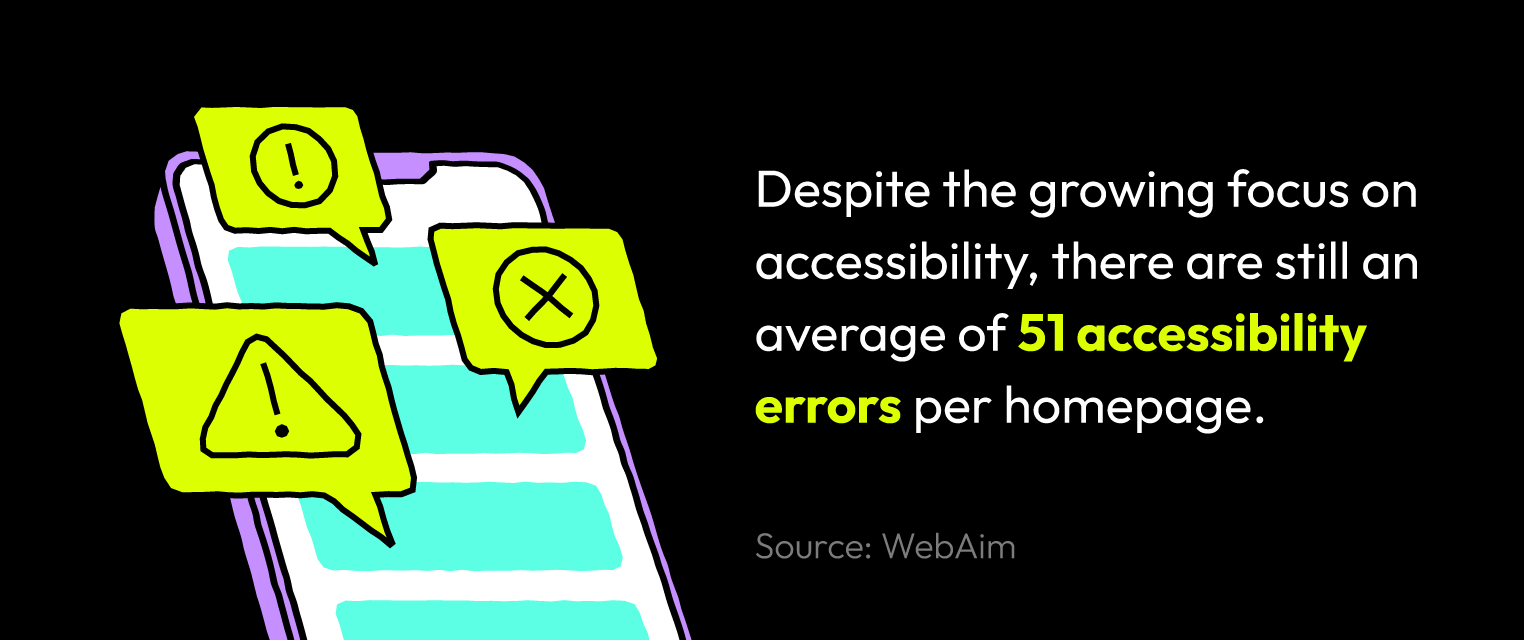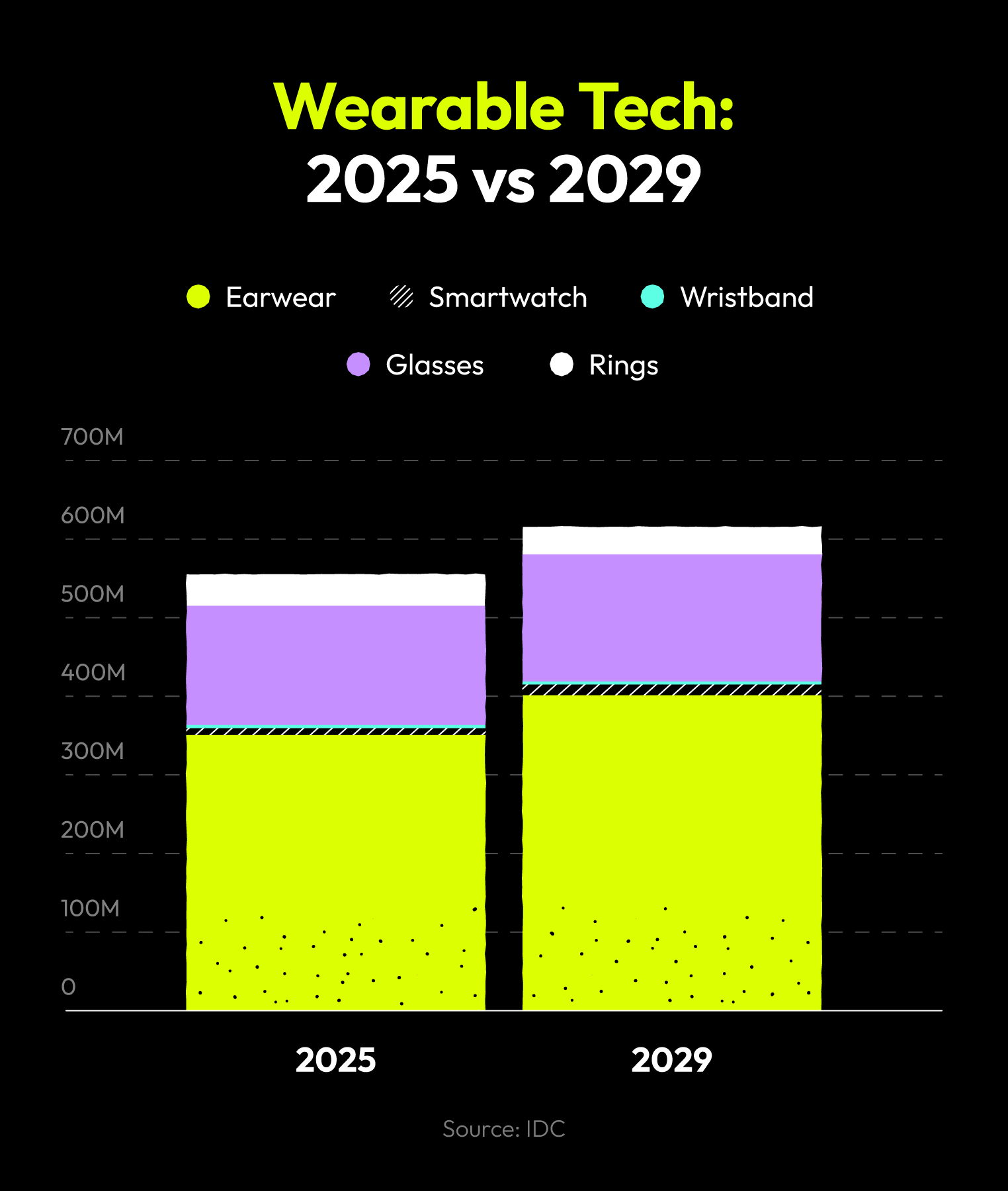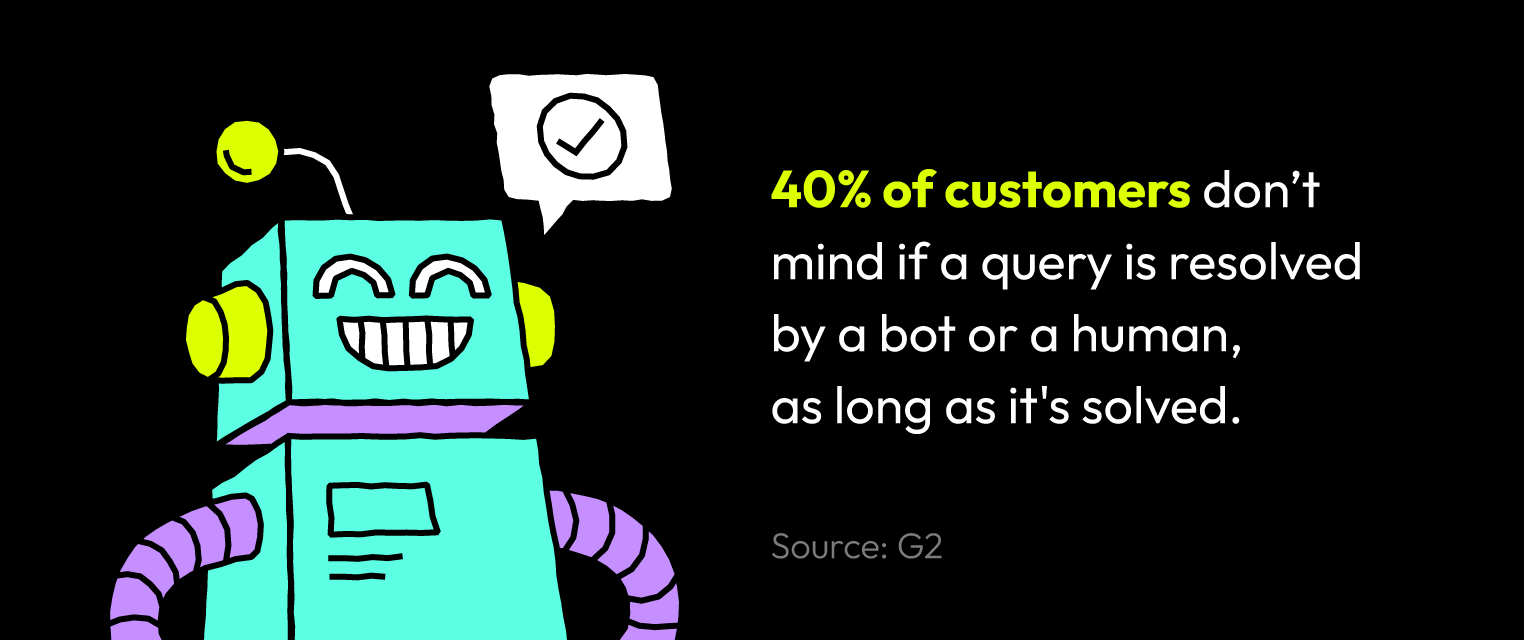Quick Fact:
Analysts project that the application development software market will reach $196 billion by 2025, increasing the pressure to innovate.
Mobile apps have become the front door to most digital experiences. As businesses strive to meet changing user expectations, keeping up with the latest mobile app development trends is essential.
From AI-powered features to cross-platform frameworks, today’s trends are shaping the future of mobile. These innovations aren’t just enhancing user experiences—they’re redefining how developers build and maintain apps.
Let’s dive into the top trends and how you can stay ahead of the competition.
Key Takeaways
Staying ahead in mobile app development means embracing technologies that prioritize speed, security, and seamless user experiences. Key trends include:
- AI and machine learning integration: Improving personalization, predictive analytics, and in-app automation.
- 5G adoption: Enabling faster load times, richer media experiences, and real-time functionality.
- Cross-platform development: Streamlining app creation for iOS and Android.
- Enhanced app security: Responding to growing privacy concerns with biometric authentication and end-to-end encryption.
- Super apps: Combining multiple services (messaging, payments, shopping) into a single, multifunctional platform.
1. AI Everywhere
Artificial intelligence is driving some of today’s most impactful mobile app development trends, powering features like voice assistants, chatbots, and health trackers. AI gives mobile apps a competitive edge by enhancing personalisation, speeding up decisions, and boosting engagement.
Businesses need developers who can build and integrate AI effectively to keep up. Fortunately, advances like AI-assisted coding are making it easier for skilled developers to create more powerful, intelligent apps faster than ever.
Platforms like Lemon.io make it easier to find vetted talent with the expertise to fully leverage AI and build unique mobile experiences.
2. 5G Opens New Possibilities
5G is redefining what’s possible in mobile app development, offering faster speeds and stronger connectivity. These upgrades allow developers to create complex, data-heavy apps, like AR tools and real-time games, without compromising performance.
To stay competitive, businesses need advanced developers who can optimize for 5G and future-proof their apps. Lagging apps risk becoming obsolete fast. Understanding mobile app costs also helps companies make smarter, more forward-thinking investment decisions.
3. Accessibility at the Forefront
The future of mobile apps lies not only in advanced features but in creating easy and intuitive experiences for everyone.
As demand grows for smarter UI/UX design, developers are focusing more on accessibility to make mobile devices useful for people with disabilities. This shift ensures apps reach a wider audience while improving overall usability for all users.
Building truly accessible apps requires a dedicated UX/UI team with the right expertise to design inclusive interfaces. Prioritizing accessibility is no longer optional; it’s a crucial part of shaping the future of mobile apps and delivering experiences that serve everyone.

4. Financial Tools At Fingertips
The number of mobile wallet users worldwide will likely reach approximately 4.9 billion by 2025, up from 2.8 billion in 2020. This significant growth emphasizes the increasing reliance on mobile devices for financial transactions.
This shift toward mobile banking brings a greater need for advanced security, seamless user experiences, and strict compliance with financial regulations.
Whether it’s building digital wallets, banking apps, or embedded finance tools, companies need developers with proven experience in fintech.
Hiring talent that understands both the technical and regulatory landscape is essential for building user trust and staying ahead in the future of mobile finance.
5. New Realities, Always Mobile
Augmented reality is no longer a novelty. It’s a growing force in mobile app industry trends, expanding how users interact with apps across industries.
From virtual try-ons in retail to interactive filters in entertainment, AR adds immersive value and helps businesses personalize experiences, gather real-time feedback, and boost user engagement.
Companies need developers with experience using AR frameworks like ARKit and ARCore to compete in this space. Building smooth, responsive AR features requires specialized skills, and hiring the right talent helps your app keep up with this fast-moving trend.
6. Wearable Tech, Instant Insights
Wearable technology has become a staple in everyday life, from smartwatches and fitness trackers to medical monitoring devices.
Users now expect these gadgets to come with fully functional mobile apps that provide instant insights, real-time data, and personalized feedback. This expectation is driving demand for connectivity between the tech and mobile platforms.
To keep up with this trend, companies need software developers who understand how to integrate mobile apps with wearable systems.
Experienced developers in hardware-software integration help deliver better performance, smoother data flow, and stronger product outcomes in an increasingly connected world.

7. Unlocking the Power of Voice
Voice technology has become a familiar part of daily life, thanks to personal assistants like Siri, Alexa, and Google Assistant.
As voice recognition continues to improve, new mobile app trends are emerging, from live translation and voice-activated search to hands-free navigation and smart home control. These features make apps more accessible, convenient, and intuitive.
Developers with expertise in natural language processing (NLP) and voice integration tools can help take your mobile app to the next level. Whether it’s enhancing an existing app or building voice-first experiences, hiring talent with the right skills is key to staying competitive.
8. Expanded User Security
Many of today’s most important mobile app innovations rely on user data. From personalization to performance optimization, data plays a key role in improving mobile experiences. But as mobile apps collect more information, they also face growing pressure to protect it.
To meet this challenge, developers are implementing stronger encryption, on-device processing, and privacy-first design principles. Businesses should hire cybersecurity-focused developers to keep user data safe and maintain trust.
As these measures become standard in mobile development, the need for specialized expertise continues to grow. As demand for these roles grows, it’s no surprise they’re among the highest-paying software engineering jobs.
9. Emphasizing Cross-Platform Experience
One of the leading app trends today is the demand for seamless cross-platform experiences. Consumers now expect their apps to function flawlessly across smartphones, tablets, wearables, and even IoT devices.
When evaluating developers or teams to build out your app, look for experience with:
- Cross-platform frameworks like React Native, Flutter, or Xamarin
- Consistent UI/UX design across devices and screen sizes
- APIs and integrations that support real-time syncing across platforms
- Testing and QA across multiple operating systems and devices
Choosing a team with this expertise ensures a more unified, scalable product that meets users wherever they are.
10. Chatbots Galore
AI-powered chatbots are showing up everywhere, from customer service and gaming to large language models and social interactions. As these tools evolve, one of the biggest app trends is advancing chatbot capabilities while strengthening safety guardrails to protect users.
To get the most value from chatbots, businesses need developers who can seamlessly connect them to CRMs, databases, and other systems for automation, personalization, and regulatory compliance. Hire game developers and AI pros to bring your vision to life.

11. Enhanced Personalization
Users are driving the popularity of one key app development trend: enhanced personalization. Today’s users expect apps to not only stay connected across devices but also adapt to their individual preferences, behaviors, and usage patterns.
Mobile apps are increasingly leveraging real-time data, like location, activity, and in-app behavior, to deliver experiences that boost engagement and retention. Hiring skilled data analysts who can interpret user data and uncover actionable insights is key to achieving this goal.
12. Finding New Ways To Use Mobile Cameras
A growing app development trend is the use of mobile cameras for more than just photos. Apps now integrate features like visual search, video transcription, and Augmented Reality (AR) experiences.
Common use cases include:
- Visual search: For products, landmarks, or text
- Live video transcription: For meetings, interviews, or accessibility
- AR overlays: For shopping, navigation, or gaming
- Barcode and QR code scanning: For payments or quick access
- User-generated content features: Like video reviews or tutorials
Finding developers who can combine camera integration with strong cloud infrastructure ensures your app can handle these advanced features.
13. IoT Enablement To Streamline Daily Life
A fast-growing trend in app development is integrating mobile apps with Internet of Things (IoT) devices, making smartphones central hubs for managing smart homes, health monitors, appliances, and vehicles.
As this technology advances, users expect seamless communication between their devices. This creates a growing demand for apps that can reliably interact with sensors, networks, and smart hardware.
To meet these expectations, businesses need developers who understand the complexities of IoT integration. Developers with IoT experience ensure your app delivers a smooth, connected experience across various devices.
14. Low- and No-Code Tools for Fast Product Development
An important app trend is the growing use of low- and no-code platforms that enable businesses to build apps quickly with minimal coding. These tools help reduce development time and costs, making it easier to bring products to market faster.
However, to ensure your app stands out and performs well, it’s crucial to:
- Customize and optimize: Go beyond out-of-the-box features to tailor the app to your needs
- Hire skilled developers: Work with experts who can enhance and extend low-code solutions
- Balance speed and uniqueness: Avoid cookie-cutter apps by prioritizing both rapid development and differentiation
- Manage costs effectively: Keep an eye on expenses by understanding software development costs
This approach lets you launch faster while creating a product that truly meets your users’ needs.
15. Blockchain Solutions for Airtight Security
Blockchain is a decentralized digital ledger that makes data almost impossible to alter or hack, making it a powerful way to boost app security.
As data privacy becomes more important, blockchain is increasingly used for secure authentication, tamper-proof storage, and transparent transactions. Blockchain’s ability to enhance security in decentralized systems makes it a valuable tool for developers.
16. Touchless UI for Ease and Accessibility
Touchless UI lets users interact with apps through gestures, voice, facial recognition, or eye tracking, removing the need for physical touch and enhancing accessibility and convenience.
Key benefits include:
- Improved accessibility: Ideal for users with mobility or vision impairments
- Greater convenience: Perfect for hands-free environments like driving or cooking
- Enhanced innovation: Helps your app stand out with modern, touch-free functionality
To build a seamless experience, it’s important to utilize skilled UI developers who can design intuitive, hands-free interactions.
17. On-Demand Mobile Apps for Consumer Convenience
As this app trend continues to grow, building a successful on-demand app requires more than a great idea; it involves real-time data processing, user-friendly design, and scalable infrastructure built by skilled developers.
On-demand apps like Uber, DoorDash, and Instacart have transformed consumer expectations by providing instant access to goods and services.
For example, Uber reported 171 million monthly active users in 2024, highlighting the widespread adoption of these platforms.
Find the Right Developer To Launch Mobile Apps With Lemon.io
Staying ahead of mobile app development trends means building apps that are innovative, secure, and tailored to user expectations.
From AI-powered personalization to IoT integration and blockchain security, turning these trends into high-performing features requires experienced developers and a focus on software quality assurance.
Ready to turn your app idea into reality? Partner with Lemon.io to quickly hire mobile developers who know the latest trends and will help your business launch standout apps in today’s competitive market.









